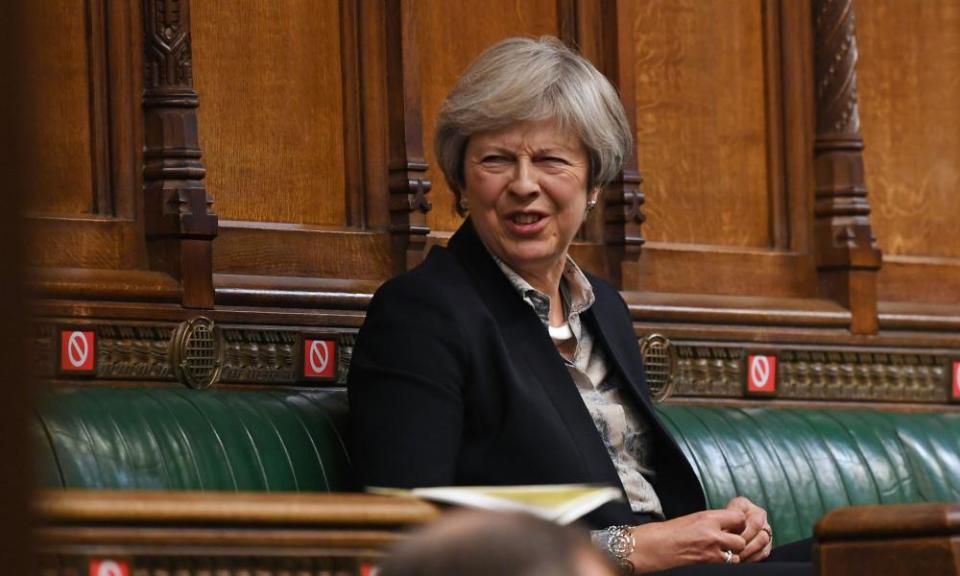May's challenge to government 'unlikely to be her last'

It was exactly the kind of grimace and shake of the head that dogged Theresa May when she addressed mutinous Tory MPs from the Commons’ dispatch box in her time as prime minister.
As Michael Gove argued on Monday that the UK could cooperate better on border security from outside the EU, the former prime minister’s mouth fell open. Her eyes narrowed, her top lip curled. And she glanced right and left to fellow backbenchers before mouthing the words “what?” and “utter rubbish”.
It was not the first time May has opposed the current regime. And former colleagues believe her reaction may be the beginning of further active challenges to Boris Johnson’s government, particularly over security as a potential no-deal Brexit looms.
Paul Harrison, who was Downing Street’s press secretary under May, said that Gove’s claim – that the UK could “co-operate more effectively” in many areas over borders outside the EU than “we ever could inside” – challenged May’s fundamental political motivations.
“Anyone who has worked with her for any length of time would tell you that the security consensus, international cooperation on that – those issues are fundamental,” he told the Guardian.
“All of her time as home secretary she tried to further that cause … she thinks it’s the primary duty of governments to protect their citizens, and she thinks that international cooperation is the best way of doing that. So I don’t think anyone who knows her would have been surprised by yesterday. It is a deeply held principle.”
May has been building up to this moment with a number of pointed interventions since she was forced out of office last year.
In June, she challenged Johnson at prime minister’s questions to warn about the security implications of a final no-deal Brexit, and then against the coronavirus quarantine plans and the harm they would do to the aviation industry.
“Without [international air travel] there is no global Britain,” she said. “So instead of bringing in measures to close Britain off from the rest of the world, why is the government not taking a lead in developing an international aviation health screening standard?”
Later that month, May challenged the prime minister’s appointment of the EU negotiator David Frost as the UK’s national security adviser, describing him as someone “with no proven expertise”. Unlike other national security advisers since the role was created in 2010, Frost had little experience in security and was not a civil servant but a political appointee.
This month, she led several senior Conservatives in a rebellion over plans to relax the house-building process in England. Ministers have since indicated that a U-turn is possible.
One former cabinet minister said May, MP for Maidenhead since 1997, has been determined to find a new role and believes there are other topics she feels deeply about which she could also be expected to address. “She cares deeply about other issues – violence against women and modern slavery are two of the subjects she worked upon whilst home secretary and in No 10.”
The former minister added: “What is so different with Theresa is that she has stayed on in active politics and wants to play an active part. Gordon Brown took a much less prominent role after losing an election. Tony Blair walked out of parliament as did David Cameron.
“The recent tradition is for prime ministers to stand back. She has gone back to older traditions where it is the politics and the policies that really matter to her.”

 Yahoo Finance
Yahoo Finance 